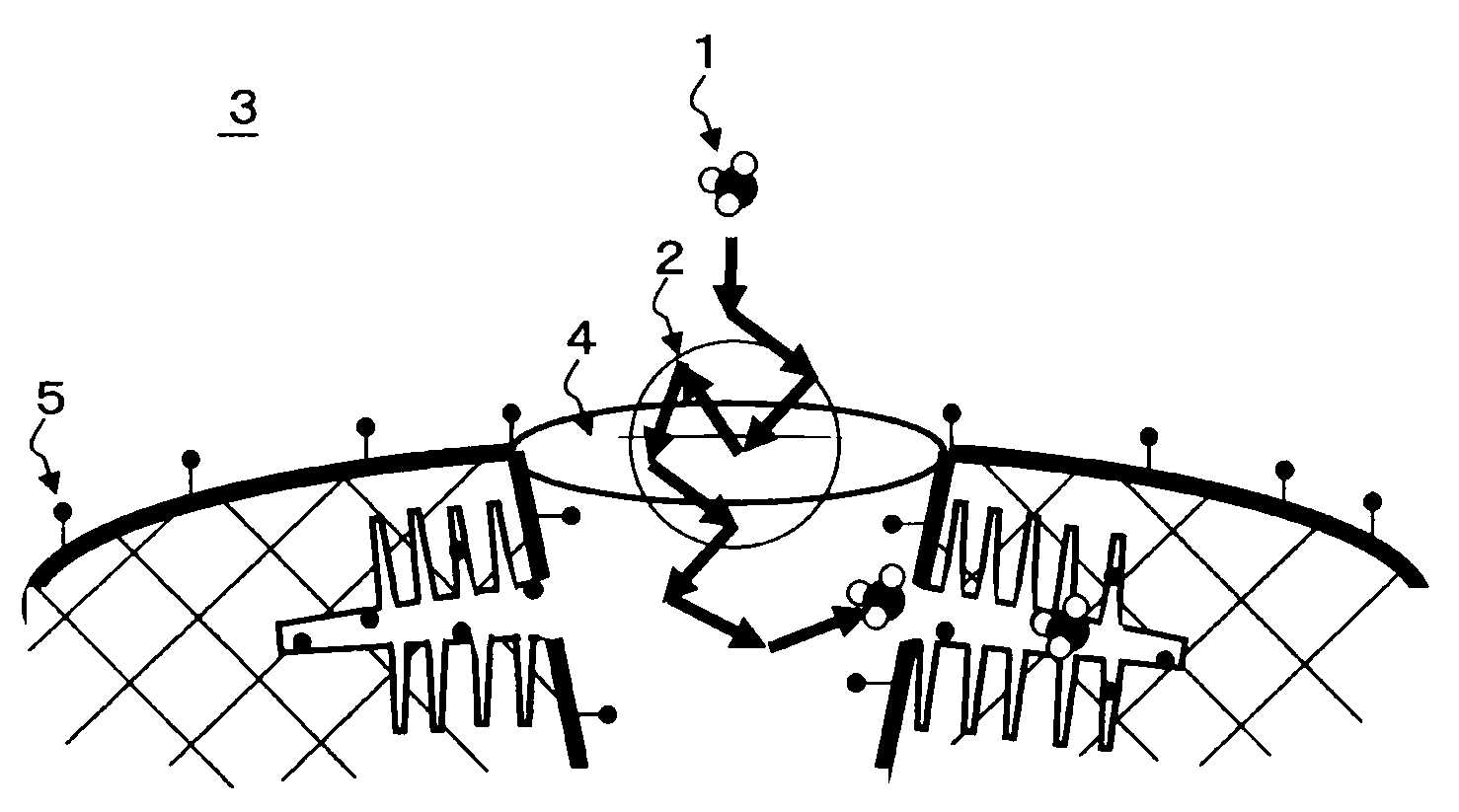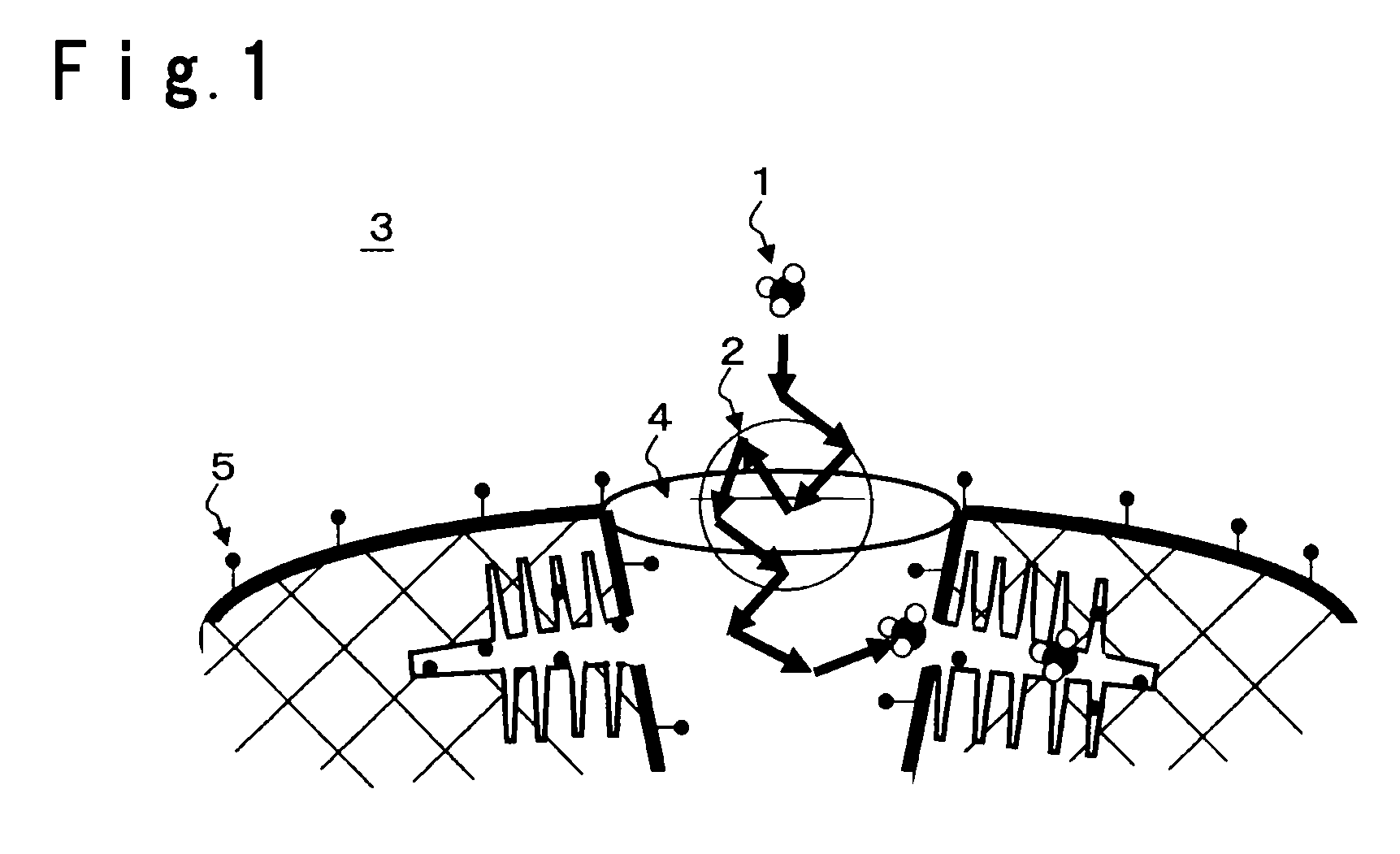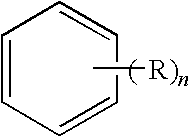Gas adsorbent
a technology of adsorbent and gas, which is applied in the direction of ion-exchangers, other chemical processes, disinfection, etc., can solve the problems of human body, low retention of adsorbent, and inability to remove aldehydes
- Summary
- Abstract
- Description
- Claims
- Application Information
AI Technical Summary
Benefits of technology
Problems solved by technology
Method used
Image
Examples
example 1
[0355]DIAION (registered trademark) CR20 (tradename, amino group-containing weakly basic anion exchange resin manufactured by Mitsubishi Chemical Corporation) was drained by a center, and 100 ml thereof was weighed and put in a 1 L four-necked flask equipped with a condenser tube and an agitating blade. 400 ml of a 2 N HCl aqueous solution was added thereto, followed by stirring at 80° C. for 5 hours. The solution was drawn, and 400 ml of a 2 N HCL aqueous solution was newly added, followed by stirring further for 5 hours and washing.
[0356]The flask was cooled to room temperature, the above resin was packed in a glass column, and 5 BV of a 1 N HCl aqueous solution was made to flow at room temperature at SV1. After washing with a 1 N HCl aqueous solution, 10 BV of deionized water was made to flow for washing to remove an excessive hydrochloric acid solution.
[0357]While the ion exchange groups of the resin in the column after washing remained in the Cl form, 5 BV of methanol was made ...
example 2
[0359]A chloromethylated polymer having a structure represented by the following formula 2 as the main skeleton, which is a precursor of DIAION (registered trademark) CR20 (tradename, amino group-containing weakly basic anion exchange resin manufactured by Mitsubishi Chemical Corporation), washed in the same manner as in Example 1 (up to a stage of removing an excessive hydrochloric acid solution by washing with a 1 N HCl aqueous solution and making 10 BV of deionized water to flow) (hereinafter referred to as a “washed precursor”), was aminated as follows.
[0360]50 g of the above-obtained washed precursor was weighed in a 500 ml four-necked flask equipped with a condenser tube and an agitating blade, and 250 ml of deionized water was added, followed by stirring at room temperature for one hour. 30 g of a 45% sodium hydroxide aqueous solution and 70 g of a 50% dimethylamine aqueous solution were added thereto, followed by stirring at 50° C. for 5 hours. After the reaction, the resin ...
example 3
[0361]The same washed precursor used in Example 2 was aminated as follows.
[0362]50 g of the above washed precursor was put in a 500 ml four-necked flask equipped with a condenser tube and an agitating blade, and 150 ml of deionized water, 30 g of a 45% sodium hydroxide aqueous solution and 200 g of diethylenetriamine (DETA, manufactured by Tokyo Chemical Industry Co., Ltd.) were added, followed by stirring at 120° C. for 5 hours. After the reaction, the resin was taken out, packed in a glass column and washed with 20 BV of deionized water, and the amine used for the reaction was removed, and the obtained resin was subjected to tests as a gas adsorbent (amino group-containing weakly basic anion exchange resin) in Example 3.
PUM
| Property | Measurement | Unit |
|---|---|---|
| acid adsorption capacity | aaaaa | aaaaa |
| retention time | aaaaa | aaaaa |
| acid adsorption capacity | aaaaa | aaaaa |
Abstract
Description
Claims
Application Information
 Login to View More
Login to View More - R&D
- Intellectual Property
- Life Sciences
- Materials
- Tech Scout
- Unparalleled Data Quality
- Higher Quality Content
- 60% Fewer Hallucinations
Browse by: Latest US Patents, China's latest patents, Technical Efficacy Thesaurus, Application Domain, Technology Topic, Popular Technical Reports.
© 2025 PatSnap. All rights reserved.Legal|Privacy policy|Modern Slavery Act Transparency Statement|Sitemap|About US| Contact US: help@patsnap.com



